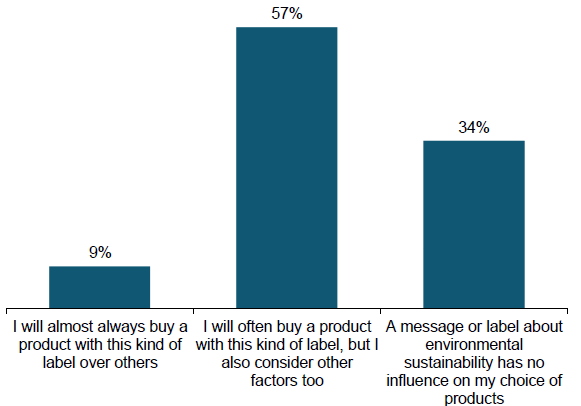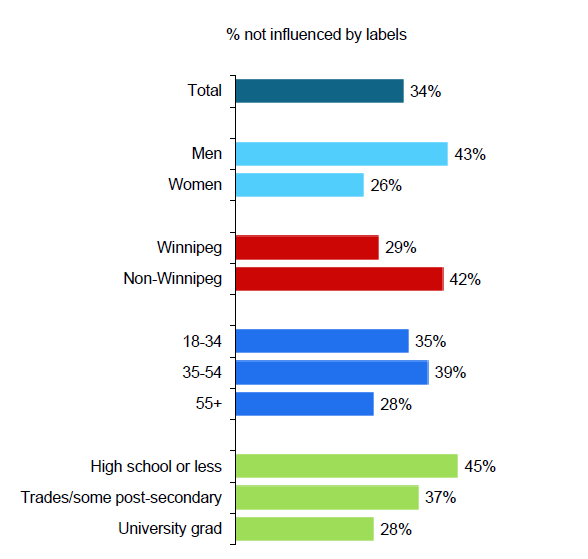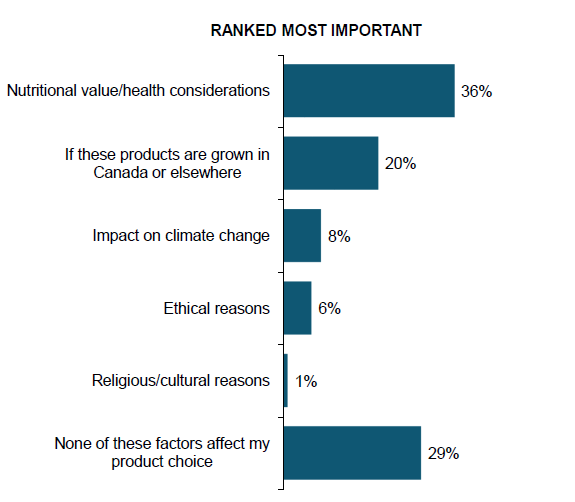Industry Sustainability Drivers
Consumer Behaviours
Consumer interest in sustainable agri-food products is increasing. This trend indicates modifications in consumption habits that have been significantly influenced by the rise in social and environmental concerns.
According to a 2020 survey performed by IBM and The National Retail Federation, nearly six in 10 customers surveyed in the United States and Canada are willing to modify their purchasing patterns to decrease their environmental impact.
Businesses in other industries along with the agri-food sector are listening to the growing consumer demands and adopting a more sustainable way of production. According to the World Wide Fund for Nature (WWF), the amount of businesses committed to biodiversity-friendly sourcing techniques climbed by 45 per cent in the food, cosmetic and natural pharmaceutical industries worldwide from 2016 to 2020.
The Canadian Centre for Food Integrity
The Canadian Centre for Food Integrity (CCFI) released the 2022 Public Trust Research Report, which provides a multi-faceted understanding of Canadians’ trust in Canada's food system. The 2022 results provide action items for the food system to share its stories and be transparent to build public trust.
- While most Canadians are concerned about everyday issues like their grocery expenses, they also expect the food system to take a leading role in addressing critical matters such as climate change and sustainability.
- Positive perceptions of Canada's food system have been consistently declining since achieving a peak in 2020.
- The primary worry for a significant majority of Canadians remains the cost of food, a concern that has maintained its top position for the past five years. This indicates that affordability is not a fleeting concern but a central issue for Canadians.
- When asked how Canadians are adjusting their behavior in response to rising food costs, the most common response is to dine out less, as reported by over 42% of respondents.
- Many Canadians, particularly in Quebec, women, and the Boomer generation, increasingly prioritize local, healthy, and environmentally friendly food items, often overlooking their cost. Additionally, there is a growing demand for products with less packaging.
- Canadians exhibit a strong interest in seeking information related to nutrition and healthy eating in the past six months, followed by ways to save on food expenses and information about local food.
Visit the CCFI’s website to download the full 2022 report.
Local Research into Consumer Purchasing Behaviour
Research conducted in September 2020 revealed that the majority of Manitobans consider environmentally sustainable product labels and messaging when deciding what food to buy. One in 10 Manitobans say they nearly always purchase these types of products over others:

Subpopulations not influenced by environmentally sustainable labels:

Health and nutrition is among the most important factors in buying plant-protein foods:

Contact
For more information on industry sustainability drivers or to get this information in an alternate format, email us at: mbproteinadvantage@gov.mb.ca.


